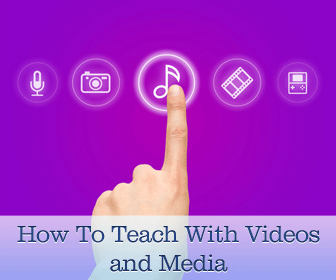The Internet has become an almost invaluable means of communication today. Rather than calling on the telephone, one can speak face-to-face with people who are on the other side of the world. As a result, the world of online teaching has also been opened up to people.
China is one country which, at the moment, is struggling with its supply of English teachers. There are simply not enough out there in order to meet the demand which is needed. As a result, many schools are also offering online courses to people who will pay for them. This can give the freelance teacher especially a lot of flexibility. Of course, teaching via systems such as Skype is only one example of using media in your lessons. For many, telecommuting job like this is often much more convenient. One does not have to travel very far, yet they can still keep ahead of their schedule. Youtube and other such websites also offer free video hosting, and therefore can supply the students and teacher with an abundance of material with which to work. However, you need to be sure of how to properly integrate this into the class effectively.
How to Teach English Using Videos and Media
-
1
Music
Music, by far, is one of the best ways of helping teach a language and get certain rules into the students’ heads. Traditionally, teaching was done by rote learning. Nowadays, this method is seen by many as simply being somewhat rigid and old fashioned. In certain cases it does work, but there are much easier ways.
Finding a song which has simple tenses in it (in order to help the class absorb it easier) is pretty simple: BusyTeacher.org has a section with 300+ of free song worksheets. In fact, this has frequently been proved to be a better method by which students can understand how grammar works. If you has access to the Internet, then it might be possible to put Youtube on and click the song. If not, then try and see if it might be possible to bring your own laptop into the class or bring in some CDs. Make printouts of the lyrics, and hand them around to the students.
If the students happen to be studying for an examination which requires grammatical analysis, then it might be a good idea to test them. Play a few lines of a song, and quiz them on what tenses are being used in it. This can often produce some very good results.
-
2
Skype, Online Teaching, E-Mail and More
For those of us who are lucky enough to get a few private students, it can always be a great source of income. Sometimes, for whatever reason, we may not be present. Perhaps the teacher has to return home for family reasons. This doesn’t mean that the student has to miss out on their lessons. Distance learning has become a more popular option for many people, and as stated before, there has been something of a revolution when it comes to the world of online teaching.
Using Skype can have its benefits. You can be anywhere in the world, as long as you have access to the Internet. This will undoubtedly benefit both parties. For the teacher, they can still continue to do some of their work and earn a bit of extra money. For the students, particularly if they have an exam coming up, they can get some extra help. Even if the teacher is absent, the student can send e-mails regarding any questions they have. Learning time does not necessarily have to be restricted to the classroom. Many students will even pay a bit extra to have some on-demand help should they need it.
-
3
Listening Practice
Youtube, again, can be seen as a saviour to many teachers. Frequently in school, when learning a foreign language, we were all subjected to aural work. This required us to answer a set of questions based on what was heard playing on the tape. Even if you don’t have official tapes or CDs to follow, there is no reason why listening practice can’t be done. Find a simple video on Youtube, involving a conversation between two people, and test the class on it!
Overall, media and the Internet have more or less revolutionized teaching and made it much easier.
Who knows what other kinds of developments might take place in the future which will help make learning language easier. As always, be sure to conduct your classes with a little bit of humour and fun in order to keep the students eager and engaged!
P.S. If you enjoyed this article, please help spread it by clicking one of those sharing buttons below. And if you are interested in more, you should follow our Facebook page where we share more about creative, non-boring ways to teach English.








